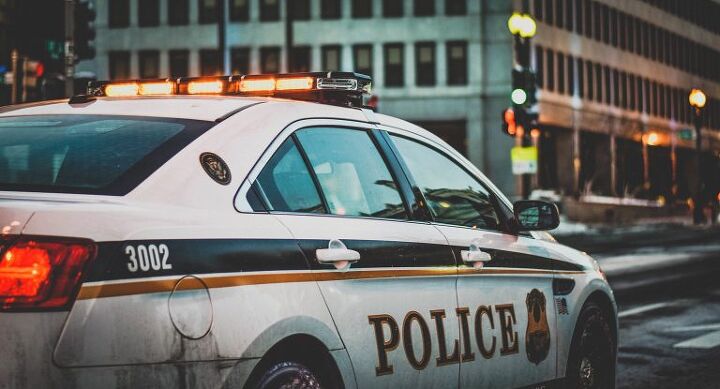Georgia Police Occasionally Placing Innocent People in Jail for 'Drugged Driving'

It’s estimated that roughly 28 people are killed every day as a result of drivers intoxicated on alcohol. In 2015, 10,265 people died in alcohol-related incidents, accounting for nearly one-third of all motor vehicle fatalities within the United States. However, the Department of Transportation shows the number of deaths associated with drunk driving trending downward since 2007. Likewise, the number of annual self-reported alcohol-impaired driving episodes recorded by the CDC have diminished to record lows in that same timeframe — and so have arrests.
Law enforcement likely played an important role. Police departments take drunk driving seriously and decades of aggressive actions have made the risks involved less than appetizing to even those whose judgement is clouded by booze. But as alcohol-related arrests have plummeted, drug-related arrests have gone up.
While much of this can be attributed to drunk drivers who decided to double-down with marijuana, drugs are estimated to be a factor in 16 percent of motor vehicle crashes where alcohol isn’t present. This has resulted in some police departments implementing special task forces designated to identify and arrest “drugged drivers.” But there is a problem — officers in Georgia have been arresting innocent people.
While nobody wants impaired drivers on the road, potentially endangering lives, jailing someone who hasn’t committed a crime isn’t exactly categorizable as an acceptable casualty.
According to a report from 11Alive News in Atlanta, Georgia has 250 officers who are “qualified” as drug recognition experts (DREs). However, after watching them assess an individual, the process seems to involve little more than chatting them up, looking into their eyes, then having them look at various lights for ten minutes (in addition to standard DUI testing procedures).
Cobb County Police Officer T.T. Carroll is one such drug identification expert, and has arrested at least three individuals erroneously for driving under the influence of marijuana. In every videotaped instance, the suspect engages in a minor roadway infraction, usually crossing the center line, before being pulled over and tested. The dashcam footage contained in the report doesn’t highlight any obvious markings of intoxication and the conversation is as lucid as it is civil, but Carroll nonetheless arrests them for driving under the influence of drugs.
“I didn’t realize that you could get arrested for something that you didn’t do,” Katelyn Ebner, one of the people arrested by Carroll, told 11Alive in an interview. “That never crossed my mind until it happened to me.”
Ebner was arrested under suspicion of having smoked marijuana, spent the night in jail, and had her alcohol server’s permit revoked as a result. All of her blood work eventually came back completely clean. Ebner said she assumed she would be going home after she passed the breathalyzer test and answered Carroll’s questions. When he placed the handcuffs on her she inquired about a test for marijuana intoxication.
“You’re going to jail, ma’am. Okay? I don’t have a magical drug test that I can give you right now,” the officer responds in the video.
Katelyn Ebner filed an Internal Affairs complaint against Carroll but investigators exonerated the officer, claiming the drug could have already metabolized out of her blood. However, a urine test that should have shown some signs of drug use also tested negative and Ebner passed along the results. “They said, ‘Yeah, we see this happen all the time. Um, the test results come back wrong all the time,'” she said.
This year, Mothers Against Drunk Driving awarded Cobb County’s DUI Task Force a trophy, with Officer Carroll gaining a Silver Medal for his 90 DUI arrests during 2016.
“He’s getting an award for just arrests,” Georgia resident Princess Mbamara complained. “Not even convictions. Arrests.”
Mbamara was another suspected DUI arrested by Carroll who later turned out to be clean. “And I’m one of these arrests,” Mbamara continued. “So this guy is just stacking up on awards and trophies. On ruining people’s lives.”
“He’s getting praised for arresting innocent people,” Katelyn Ebner said. “I’m not saying all those people he arrested were innocent, but at least three of them were, and no one is doing anything about it.”
Ebner and Mbamara both spent thousands of dollars trying to prove her innocence over the course of several months.
Officer Carroll subsequently received a promotion and a merit-based raise after his 2016 employment evaluation. It noted his exceptionally high number of DUI arrests ending in convictions or pleas and commended his record for making the correct decision on dealing with potentially impaired drivers.
Therein lies the problem. Many people, including Mbamara, are encouraged by legal council to take a plea deal rather than fight a case that’s difficult to prove. Neither of the women, nor the third unnamed Auburn University student arrested by Carroll, tested positive for illicit drug use and appeared to have performed their field sobriety tests adequately. But they were still arrested and forced into the courts to prove their innocence when it never should have been up for debate.
While it’s unlikely any officer is going to have a perfect arrest record, making arrests based on what seems to amount to a gut feeling is irresponsible. Nobody wants impaired drivers rampaging on the freeway, but nobody wants to be placed at risk of being jailed for committing zero crimes, either. Officer Carroll is state-certified drug recognition expert, one of 250 in Georgiawho have undergone a month-long training course. He has also been praised for being among the best his state has to offer.
Examining an older edition of the NHTSA’s “Drug Recognition Expert” student handbook, it’s easy to see how easily someone could be wrongfully accused of intoxication. While the testing procedure is extensive and science-based, there remains a lot of room for error. Several of the testing procedures reference non-specific variances that could result in someone being undeservedly ushered into the back of a squad car.
In one portion of the manual, dealing specifically with the smooth eye tracking used to evaluate the presence of alcohol and other drugs, the manner in which to administer the test is clearly outlined in excruciating detail. While the testing procedure itself is measured in precise inches and degrees, the measurements on how to assess the subject’s response are comparatively vague. The handbook also states, “It is important to always keep in mind that this formula expresses an average, approximate statistical relationship, not a precise mathematical relationship. Humans, and their eyes, do not all react to alcohol or other drugs in exactly the same way. The formula may be reasonably accurate for some people but much less accurate for others.”
Perhaps it’s time to reevaluate the metrics used to assess non-alcoholic intoxication in Georgia (and other states already using DREs) before this mess catches on in other parts of the country. We don’t need any more civilians, or officers, taking heat for what seems to be an avoidable problem.

A staunch consumer advocate tracking industry trends and regulation. Before joining TTAC, Matt spent a decade working for marketing and research firms based in NYC. Clients included several of the world’s largest automakers, global tire brands, and aftermarket part suppliers. Dissatisfied with the corporate world and resentful of having to wear suits everyday, he pivoted to writing about cars. Since then, that man has become an ardent supporter of the right-to-repair movement, been interviewed on the auto industry by national radio broadcasts, driven more rental cars than anyone ever should, participated in amateur rallying events, and received the requisite minimum training as sanctioned by the SCCA. Handy with a wrench, Matt grew up surrounded by Detroit auto workers and managed to get a pizza delivery job before he was legally eligible. He later found himself driving box trucks through Manhattan, guaranteeing future sympathy for actual truckers. He continues to conduct research pertaining to the automotive sector as an independent contractor and has since moved back to his native Michigan, closer to where the cars are born. A contrarian, Matt claims to prefer understeer — stating that front and all-wheel drive vehicles cater best to his driving style.
More by Matt Posky
Latest Car Reviews
Read moreLatest Product Reviews
Read moreRecent Comments
- Kwik_Shift_Pro4X What's worse than a Malibu?
- MaintenanceCosts The current Malibu is poorly packaged; there's far more room inside a Camry or Accord, even though the exterior footprint is similar. It doesn't have any standout attributes to balance out the poor packaging. I won't miss it. But it is regrettable that none of our US-based carmakers will be selling an ordinary sedan in their home market.
- Jkross22 You can tell these companies are phoning these big sedans in. Tech isn't luxury. Hard to figure out isn't luxury.This looks terrible, there are a lot of screens, there's a lot to get used to and it's not that powerful. BMW gave up on this car along time ago. The nesting doll approach used to work when all of their cars were phenomenal. It doesn't work when there's nothing to aspire to with this brand, which is where they are today. Just had seen an A8 - prior generation before the current. What a sharp looking car. I didn't like how they drove, but they were beautifully designed. The current LS is a dog. The new A8 is ok, but the interior is a disaster, the Mercedes is peak gaudy and arguably Genesis gets closest to what these all should be, although it's no looker either.
- Ajla My only experience with this final version of the Malibu was a lady in her 70s literally crying to me about having one as a loaner while her Equinox got its engine replaced under warranty. The problem was that she could not comfortably get in and out of it.
- CoastieLenn Back around 2009-2010, a friend of mine had a manual xB and we installed a Blitz supercharger kit. Was a really fun little unit after that.


































Comments
Join the conversation
This is the main reason people don't trust or fear the police especially minorities and women. I would figure the scumbag lawyer cartel would have a field day suing the PD's for false arrest/imprisonment.
The real shocker is at the end of the video news story. Two points of interest: Police actually told the reporter that tests are often wrong. Seriously? That's a statement that would be an attorney's wet dream. And second, the police said that an officer's judgement (or opinion, and we all know what opinions and rectums have in common) is more accurate than a scientific test. Honestly, anyone that truly believes that does not have the intellectual capacity to serve in any public role including dog catcher, and sure as hell should not be in the position to deny liberty or life to another human being.